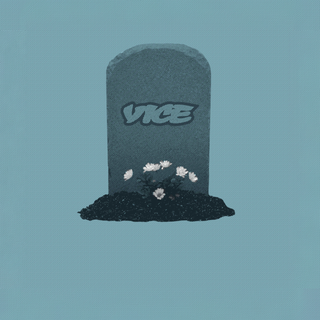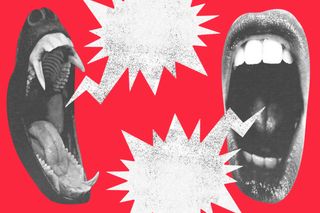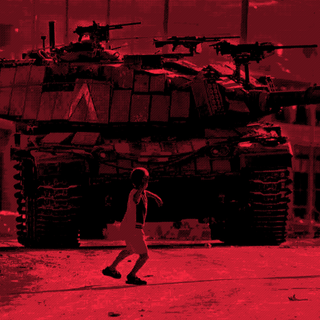
Is the Debate on Human-Dog Conflicts Ignoring Class, Caste?
It isn’t about whether humans are more important than dogs. It’s about who gets to ask the question – and who is left to deal with the fallout of simply displacing the problem.

The Kerala High Court ruled yesterday that human lives should take precedence over that of dogs. "School children are afraid to go alone to their school because of the apprehension that they will be attacked by stray dogs. ... Morning walk is also not possible today in certain areas because of the apprehension of attacks from stray dogs. If any action is taken against the stray dogs, the dog lovers will come and fight for them. But I am of the considered opinion that human beings should be given more preference than stray dogs," the Court said, according to Bar and Bench. The court was ruling on a petition submitted by a party, who complained that his neighbour maintaining and feeding local dogs was causing safety and hygiene issues in the locality.
Beyond this petition, recent incidents in which toddlers were mauled by local dogs, with two having died over the last two weeks as a result, have led to heated debate. On the one hand are those in favor of measures such as culling street dogs, and on the other are those who deem such a measure as cruelty. In the most recent case, animal rights activists said that street dogs are often blamed without evidence. Last year, a couple feeding dogs in a housing society alleged that a mob attacked them with sticks, leading to the two sides filing FIRs against one another. Another man in a Pune housing society experienced something similar, when he was reportedly beaten for feeding dogs which allegedly chased children in the compound. In another residential complex, street dogs were captured and re-released following a court’s orders that the dogs shouldn’t be removed from their localities per the Animal Birth Control rules, despite the fact that a child was mauled months prior. In Ghaziabad, a 23-year-old “dog-lover” beat up an elderly man over an argument about feeding dogs. And in Noida, a resident beat up a security guard for not removing a dog from the premises.
The rising tensions speak to the fact that the issue is self-reproducing. Dogs get aggressive due to human aggression, who respond with aggression to dogs harmed by other humans – making the cycle perpetuate itself. Further, unscientific feeding practices, poor birth control measures, and unchecked pack-formation exacerbate the issue. This has turned a species that was once important tot the ecosystem into one that’s beginning to be detrimental to it. “Dogs serve an important ecosystem service by being scavengers of waste food. This also helps to keep the population of rats and other rodents under check,” Anindita Bhadra of Dog Lab, Indian Institute of Science Education and Research Kolkata, told Frontline, citing the plague outbreak in Surat in 1994 that followed the mass culling of dogs that was undertaken there. But there’s also the fact that poor food waste management and rapid urbanization have altered dog populations, such that they also pose a threat to other wildlife, including endangered species, according to Mongabay.
Again, human intervention has a key part to play. A study co-authored by Bhadra, and published in Frontiers journal, showed that humans dominate the social interaction networks of free-ranging dogs in urban spaces. Another study showed that conflicts with free-ranging dogs tended to be fewer where humans were kinder or indifferent to dogs, as opposed to harsh or negative.
But in all this, it’s hard to ignore the fact that, often, two parties stand out as dominant stakeholders on either side: resident welfare associations (RWAs) on the one hand and animal welfare groups on the other. It prompts the question: does the relatively privileged class and caste positioning of both groups of people ignore the real stakeholders? Consider that a disproportionate burden of dog bites and rabies are carried by the homeless and the poor. The facts are hard to ignore: India has the highest number of rabies deaths in the world, and a significant number of them are children. There’s the added fact that rabies disproportionately affects the poor, due to lack of access to vaccines, and a lack of awareness about the treatment regimen. “As an entirely vaccine-preventable disease disproportionately affecting the poor in low- and middle-income countries, preventing unnecessary human rabies deaths and suffering by addressing barriers to access to human PEP is an important means of achieving social justice,” one study noted.
“The urban middle class elite… has a problem not just with dogs, but also poor people – both of whom are part of the public street space ecosystem,” Alok Hisarwala Gupta told Scroll. The conflicts between “dog-lovers” and residents, then, are intractable because the problem is hardly ever resolved, only relocated. When dogs are rounded up, they’re placed in localities with little bargaining power to control animal populations in their areas. It arguably explains why, in a great number of anecdotal dog attacks, the victims are often infants and children left unattended on a pavement or a street.
The added baggage of caste and colonialism complicates the issue further. “Labelled ‘pariahs’ by the British, street dogs were viewed and treated as outcast in the colonial period. The term’s etymology lay in Paraiyar, the former name of a caste-oppressed community… Framing this group as victims of caste oppression, the British nonetheless disdained the Paraiyars’ supposed immorality, drunkenness and brutishness, and used the term ‘pariah’ to refer to outcasts, human and nonhuman alike,” notes Aeon magazine.
The loaded associations with street dogs in particular makes the human-dog issue inseparable from social justice and equity. At the heart of it is the fact that free-range dogs don’t conform to the relationship of ownership that people generally have with animals, and their territoriality also challenges boundaries that humans draw to define their residential ownership. If those who are most impacted by dog conflicts are people without access to this territorial agency, they’re left out of the conversation, which inevitably turns into one centering the ownership of space rather than citizenship and coexistence. “Informality, a carefully produced condition that is exceptional to formal governance and planning, legitimises the view of animals (and poor humans) as ‘trespassers' in urban spaces,” one paper argues.
The question, then, isn’t about whether humans are more important than dogs. It’s about who gets to ask the question – and who is left to deal with the fallout of simply displacing the problem.
Rohitha Naraharisetty is a Senior Associate Editor at The Swaddle. She writes about the intersection of gender, caste, social movements, and pop culture. She can be found on Instagram at @rohitha_97 or on Twitter at @romimacaronii.
Related


Who Gets to Be a Child?
.png?w=320&h=320&auto=format)